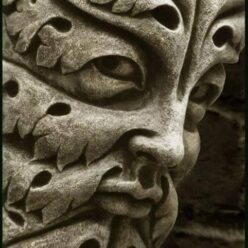The world is now awash in land acknowledgments. The Aussie one at the end of many TV productions sounds like it went through a glass-cutter:
We acknowledge the Traditional Owners of country throughout Australia and recognise their continuing connection to land, waters and culture. We pay our respects to their Elders past, present and emerging.
See, in my conception of the local Indigenous practices, they don’t own land. They’re in a permanent (in planetary existence timescales) and precious relationship with their land and their language and their people, and to call the land part of the relationship ownership is everything that’s wrong with colonialism in a single sentence.
I see that acknowledgment as shown above and I feel a gaping lack.
(However I urge you to look up how the word ‘country’ is used in English by many Indigenous people living in Australia, because it’s beautiful and resonant.)
As of 2019, this is my land acknowledgement:
I acknowledge that nothing short of complete restitution of Indigenous lands across this Earth will do.
I acknowledge that reparations for the land, war crimes, genocide, language extinction; theft, despoliation and destruction of great works of art and cultural centred-ness; as well as yet unknown damages to Indigenous people caused by sequelae from these events, are due in full measure, and I hate that capitalism is going to make that reparation virtually impossible even if it completely fails, as I hope it does.
I will hold up Indigenous rights and ask Indigenous persons no rude questions, tell no rude lies about them, and may study with consent but co-opt none of their spiritual or artistic practices for praise or pay.
I will pay Indigenous editors to read my fiction, some of which is already published, but which needs to be vetted by someone without my biases, so that it may be changed, and changed again if need be; the future comes on fast.
(note, from August 2021… this is proving more difficult than I had originally anticipated)
This land, the land I live on, belongs in the human care of Coast Salish people, specifically to the peoples of MST country, nations among whom made their own agreements, under their own systems of justice and negotiation. I hope to keep living here, after it’s been released from colonial bondage and theirs in the sense that they may be in their traditional relationship with this land, without colonial interference. I hope to live here when the sign at the city limits comes down and there are no longer any artificial colonial barriers between any of the lands here.
I’m a settler here. My descendants will most likely be settlers. I will never again commit the violence of ‘owning’ land under the stamp of the Province of British Columbia again or indeed anywhere in what is now called Canada, and I encourage my children to do likewise. I am unemployed and cannot pay the rent I owe to any local nation, but I acknowledge that I owe it and may be called upon to pay it some other way.
